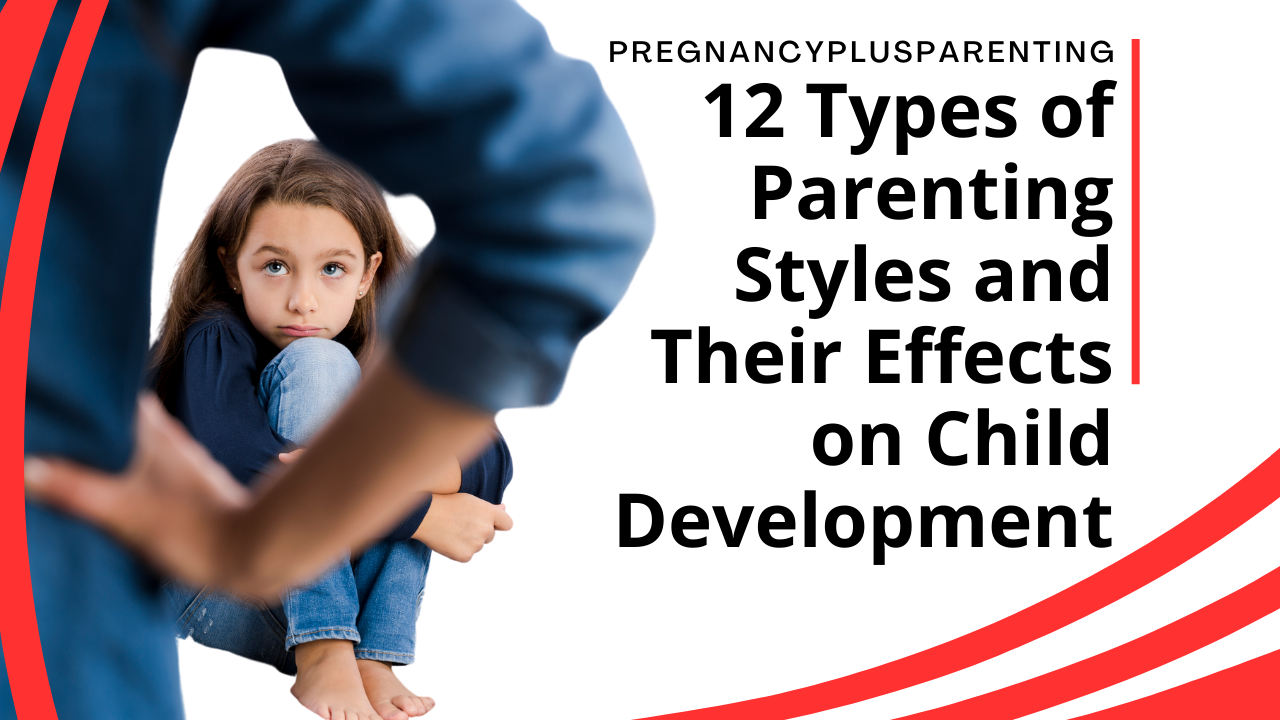12 Types of Parenting Styles and Their Effects on Child Development
Parenting styles are crucial in shaping a child’s personality, emotional well-being, and future behavior. Different approaches to parenting result in varying impacts on a child’s development. Here are 12 distinct parenting styles and their potential effects on children.
1. Authoritative Parenting
Characteristics:
- High responsiveness and high demands.
- Parents set clear rules but are also nurturing and communicative.
- Encourages independence while maintaining boundaries.
Effects on Child Development:
- Children tend to be self-disciplined and confident.
- Strong social skills and emotional intelligence.
- Perform well academically and have better mental health.
2. Authoritarian Parenting
Characteristics:
- High demands but low responsiveness.
- strict guidelines and standards with minimal leeway for compromise.
- Discipline is often punitive rather than instructive.
Effects on Child Development:
- Children may become obedient but can lack self-esteem.
- Higher likelihood of anxiety or fear-based compliance.
- Struggles with social skills and self-expression.
3. Permissive Parenting
Characteristics:
- High responsiveness but low demands.
- Few rules or expectations; indulgent parenting style.
- Prioritizes being a friend over being an authority figure.
Effects on Child Development:
- Children may struggle with self-discipline and responsibility.
- Risk of entitlement and poor academic performance.
- Stronger emotional bonds with parents but lower resilience.
4. Neglectful Parenting (Uninvolved Parenting)
Characteristics:
- Low responsiveness and low demands.
- Minimal interaction and involvement in the child’s life.
- Often unintentional, arising from personal or external issues.
Effects on Child Development:
- Poor emotional regulation and self-esteem.
- Difficulty forming relationships due to lack of guidance.
- Higher risk of behavioral problems and academic struggles.
5. Helicopter Parenting
Characteristics:
- Overly involved in every aspect of the child’s life.
- Focused on protecting the child from failure or harm.
- Often micromanages the child’s decisions and activities.
Effects on Child Development:
- Children may lack problem-solving skills and independence.
- Increased anxiety and dependency on parents.
- Struggles with resilience and handling challenges.
6. Free-Range Parenting
Characteristics:
- Encourages independence and self-reliance.
- Minimal supervision, allowing children to explore and learn from experiences.
- Emphasizes trust and responsibility.
Effects on Child Development:
- Children often become confident and resourceful.
- Better critical thinking and decision-making skills.
- Potential risk of safety concerns if boundaries are not well-defined.
7. Attachment Parenting
Characteristics:
- High focus on emotional bonding and responsiveness.
- Practices include co-sleeping, extended breastfeeding, and constant physical closeness.
- Prioritizes nurturing a secure attachment.
Effects on Child Development:
- Strong emotional bonds and sense of security.
- Higher empathy and better emotional regulation.
- Risk of dependency issues if boundaries are not established as they grow.
8. Tiger Parenting
Characteristics:
- Extremely high demands with a focus on achievement.
- Strict discipline and often prioritizes academics and extracurricular success.
- Low emphasis on emotional well-being.
Effects on Child Development:
- High-performing but often stressed children.
- Risk of burnout and self-esteem issues.
- Strong work ethic but difficulty balancing stress and personal satisfaction.
9. Gentle Parenting
Characteristics:
- Emphasizes empathy, respect, and understanding.
- Focuses on guiding rather than controlling.
- Avoids punishment, using natural consequences as teaching moments.
Effects on Child Development:
- Children develop emotional intelligence and empathy.
- Better at conflict resolution and problem-solving.
- Risk of entitlement if boundaries are not consistently enforced.
10. Lawnmower Parenting (Snowplow Parenting)
Characteristics:
- Clears obstacles from the child’s path to ensure success.
- Minimizes exposure to challenges or failure.
- Often linked to overprotectiveness and high involvement.
Effects on Child Development:
- Children may struggle with resilience and handling adversity.
- Overdependence on parents for problem-solving.
- High expectations without the skills to manage challenges independently.
11. Overprotective Parenting
Characteristics:
- Highly focused on shielding the child from risks or harm.
- Limits exposure to new experiences or potential challenges.
- Driven by fear of failure or harm.
Effects on Child Development:
- Reduced confidence and independence.
- Difficulty managing fear and anxiety in unfamiliar situations.
- Over-reliance on parents for emotional and practical support.
12. Positive Parenting
Characteristics:
- Focused on building trust, respect, and encouragement.
- Uses positive reinforcement rather than punishment.
- Prioritizes open communication and empathy.
Effects on Child Development:
- Children feel valued and supported, boosting self-esteem.
- Strong problem-solving and emotional regulation skills.
- Fosters a happy and cooperative parent-child relationship.
How Parenting Styles Impact Development
Parenting styles profoundly influence a child’s:
- Emotional Development: Secure attachments promote emotional stability, while neglectful styles may lead to insecurity.
- Social Skills: Responsive and communicative parenting encourages empathy and cooperation.
- Cognitive Growth: Supportive and structured environments help children excel academically.
- Resilience: Balancing support with independence builds the ability to face adversity.
Finding the Right Parenting Style
While no parenting style is perfect, a balanced approach combining structure, love, and communication often yields the best results. Adjusting your parenting style based on your child’s personality and needs can create a nurturing environment for optimal growth.
Conclusion
Parenting is a dynamic and evolving journey. Understanding these 12 parenting styles and their effects can help you reflect on your own practices and adapt them to support your child’s development. Remember, the goal is to nurture a happy, confident, and well-rounded individual by striking a balance between love, guidance, and independence.






